This lo-fi, PS1-style horror is like a campy Saw escape room, and I'm definitely getting the bad ending
The Tartarus Key has a hell of a look, some great puzzles, and a tone that occasionally grates.
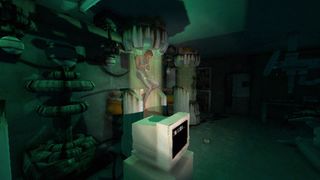
Everything was scarier on the PS1. That's just a fact. The undulating textures, the motionless patchwork faces, the audio that sounded like it was coming through three layers of tin foil, all of it combined to create something truly dread-inducing in games like Alone in the Dark and Silent Hill. As games get closer to photorealism, they get closer to real life, and real life is tedious, not scary. You need something really uncanny to get the goosebumps going, and back in the late '90s, the PS1 did uncanny like nothing else.
The fact I was five years old at the time probably also had something to do with it.
I assume this is why The Tartarus Key—which came out today from developer Vertical Reach—has adopted its lo-fi PS1 aesthetic so enthusiastically. A creepy, puzzle-based affair, the game summons all the ghosts of the horror of yore to give life to its big, haunted mansion.
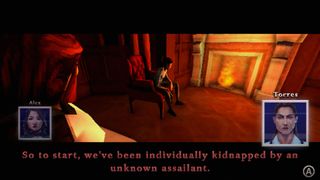
You play Alex Young, a young woman who awakens one evening to find herself transported to a haunted house. Locked in a room, watched by cameras, and with no way out and only another equally trapped victim on a walkie-talkie to help her, it's up to Alex to bust free of her imprisonment and try not to accidentally kill the other victims she encounters on the way. It's a little bit Saw and a little bit Resident Evil 1, but with no combat to interrupt you smashing your head against puzzle after puzzle.
The whole thing is a kind of big escape room, with each wing and room of the mansion serving up its own particular puzzle for you to solve before you're allowed to progress. The ones I've encountered in my few hours playing have all been handled quite well: they left me poking at things and scratching my head for five or 10 minutes before a eureka moment allowed me to progress, and they've all culminated with a final puzzle that leaves the fate of some other unfortunate soul in your hands.
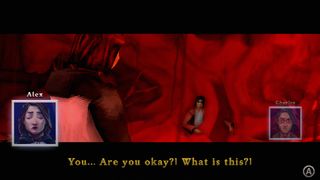
The first one of these sees you attempt to rescue the voice on the other end of that walkie-talkie—an ex-detective named Torres—from a room slowly filling with gas. Depending on the choices you make, Torres can either make it out of the room scot-free or injured. Later on, you find a cheerful demonologist academic having an intellectually rewarding time being slowly consumed by a growing mass of otherworldly flesh.
I confess that I might have made a hash of the banishing ritual once, twice, or three times before my fourth and final save-scum finally let me save the poor fool. The other times? He died, sucked into a wet glob of transdimensional mucous membrane.
The biggest gaming news, reviews and hardware deals
Keep up to date with the most important stories and the best deals, as picked by the PC Gamer team.
I'm always game for something that lets my world-historically bad choices lead to world-historically bad outcomes, even if I will abuse any opportunity I'm given to redo my decision, so I've enjoyed the time I've spent with The Tartarus Key so far. Or, most of the time I've spent with it, anyway, as long as the characters aren't opening their mouths.
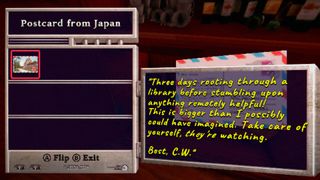
Because although I rather like the swimmy, archaic look of the game, and think the antique graphics compliment its horror in a really sharp, uncanny way, The Tartarus Key seems determined to undercut itself. The characters are frequently quipping, japing, jibing, and hanging lampshades on tropes in ways that aren't quite funny enough to compensate for undermining the tension of the eerie mansion.
I could never quite get a bead on the game's tone: Is this a tribute to old-school horror or a satire of it? I suspect it's meant to be both, but I don't think the horror and the comedy blend well enough to produce something coherent. Instead, you're just veering between one and the other, never quite sure where the game intends you to land.
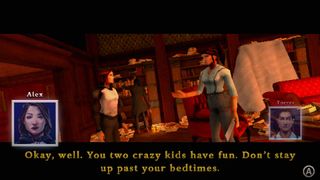
But for the most part I've liked the puzzles and the horror elements that the game doesn't undercut. I want to see how the rest plays out. The game's Steam page boasts of three endings, and I've got to imagine that your success rate in rescuing the mansion's other victims play a key role in determining which one you get. If my experience so far is any indication, I'm going to need a lot of backup saves.

One of Josh's first memories is of playing Quake 2 on the family computer when he was much too young to be doing that, and he's been irreparably game-brained ever since. His writing has been featured in Vice, Fanbyte, and the Financial Times. He'll play pretty much anything, and has written far too much on everything from visual novels to Assassin's Creed. His most profound loves are for CRPGs, immersive sims, and any game whose ambition outstrips its budget. He thinks you're all far too mean about Deus Ex: Invisible War.
Most Popular

